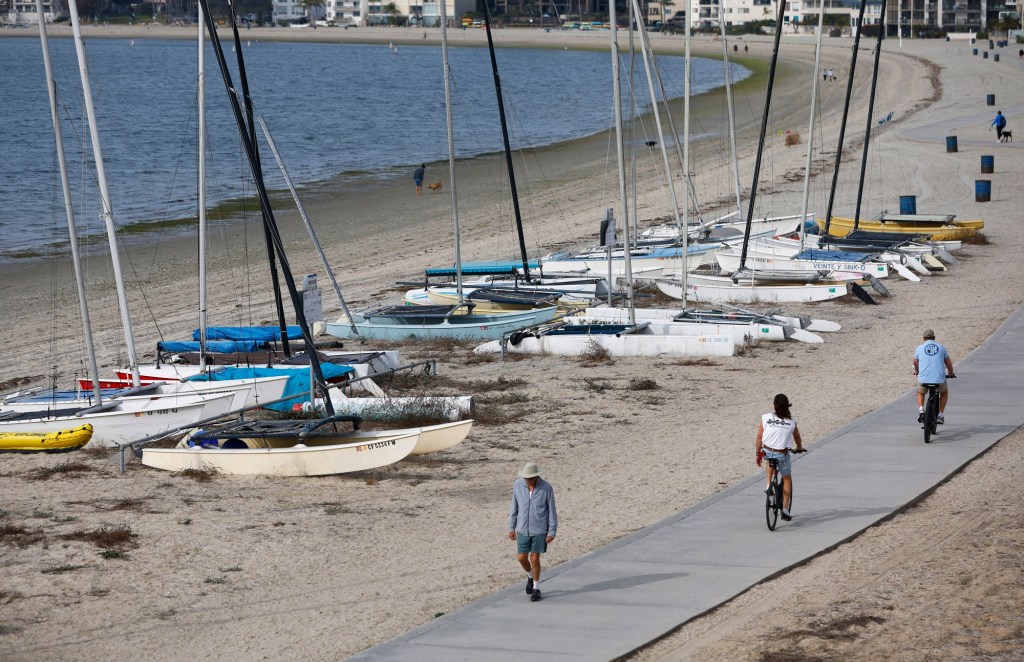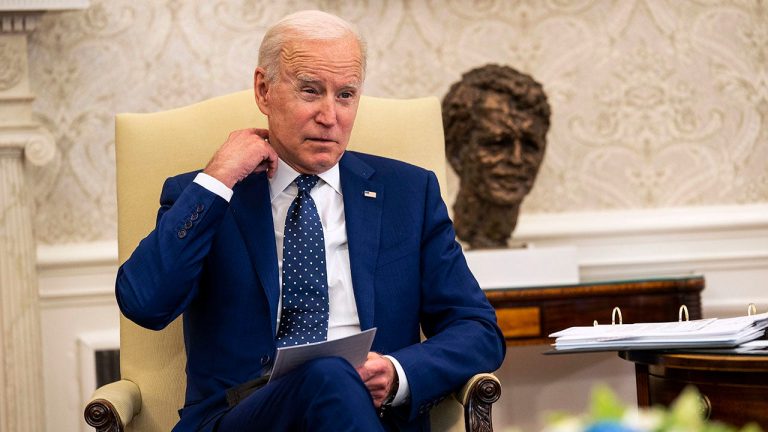
San Diego is hoping to close large budget deficits by sharply raising the fees it charges people to swim at a city pool, moor a boat in San Diego Bay, rent a library meeting room, reserve a volleyball court or use hundreds of other city services.
People who live outside the city might also have to start paying more than San Diego residents to use city fields and popular destinations like Fiesta Island and Balboa Park.
The proposals, which would hike fees by an average of 20 percent and generate roughly $25 million a year, got mixed reviews Wednesday from the City Council’s budget committee and members of the public.
The proposed increase that appeared to generate the most controversy was the city’s plan to charge more for security and traffic control at Padres games, San Diego Pride and many other popular special events.
Organizers of those events said the increases would be unfair and could force some events to make dramatic cutbacks, or possibly leave San Diego altogether.
Council members said they sympathize but stressed that the roughly $250 million deficit they face makes it especially important for the city to get fully reimbursed for the services it provides.
Instead of lobbying to scale back the proposed fee increases, Councilmember Sean Elo-Rivera said he’d like to see many of them even larger to help the city avoid budget cuts and layoffs.
City officials said the effort to raise user fees is being propelled primarily by generous pay raises won by nearly all city employees in 2023.
Another factor is how inflation has raised the costs the city pays for equipment it uses, and the costs to maintain city facilities.
State law prohibits cities and other government agencies from charging users more than it costs them to provide a service. But when a city gives its employees substantial pay raises, that raises its costs to deliver the service.
In many cases, city officials choose to charge less than their total costs — especially for events and programs that serve youths and senior citizens.
Among the hikes proposed, the price of a Barrett Lake fishing permit would rise from $30 to $45, an annual mooring permit from $808 to $965 and a tobacco business permit from $182 to $219.
While some people who would be affected raised concerns Wednesday, many others may be unaware of the proposals.

The leaders of ArtWalk San Diego, a popular event held each spring in Little Italy, said they might have to leave San Diego if city officials follow through on the fee hikes.
“I wanted to share the reality of the increases that festivals are seeing,” said Curt Brooker, the event’s director.
He said ArtWalk’s fees for security and traffic control have already risen from $19,000 in 2023 to about $31,000 this year, and that the new proposed hike would push the costs above $50,000.
“We’re not able to absorb these increases,” Brooker said. “If nothing changes and we continue on with these increases, we’ll have to move out of the city.”
The Padres also expressed frustration, estimating that the hikes would raise the team’s monthly costs for city security, traffic control and permitting at Petco Park by about $100,000.
Because the Padres host so many events at Petco, including non-baseball events, the hike would affect them in a distorted way, said Diana Puetz, the team’s vice president for public affairs.
“These increases disproportionately impact the Padres, because we are the only venue in the city of San Diego that hosts over 100 events and games a year,” she said.
The city requires the Padres to provide additional staffing at events, and under its deal with the city, the team must share 30 percent of non-baseball revenues.
“This creates an uneven playing field for us, and it really makes it difficult for us to remain competitive,” she said.

Another controversial fee increase would affect sand volleyball courts.
“I’m opposed to the new fee structure as a fundamental change,” said Steve Upp, who organizes beach volleyball events in Ocean Beach. Upp contends the city is exaggerating the costs it takes to maintain those courts.
Councilmember Kent Lee said he was concerned about the fee hikes for special events, which include raising the hourly rate for each sworn officer from $178 to $205 at for-profit events and from $89 to $154 at nonprofit events.
“I would hate see some of the major events in the city — everything from San Diego Pride down to some of the small cultural events — impacted in a way that might change how they operate,” Lee said.

He also expressed concern that some of the events are likely to lose city subsidies they’ve received in past years because the projected deficits are so large.
“That comes off as double the hit for some of these organizations,” he said.
Lee also said it was difficult to analyze the proposed hikes because the committee was presented with so many at once.
“There are so many fees to look at that it’s hard to have a full opinion on every single one of them,” he said.
Elo-Rivera focused on lobbying for full cost recovery, contending it’s unfair for taxpayers to face dramatic reductions in city services when the city is subsidizing some events and groups by not charging them enough.
“I think we have to ask ourselves who and what are we subsidizing, because there is a cost to that,” he said.
“If we are going to have conversations about reducing library hours and having less hours for families to bring their kids to play at recreation centers, I want to make sure we’re weighing that against where that money could otherwise come from,” he added.
He noted that a city analysis found that the city recovers only about 38% of the costs it could be charging for-profit sports leagues.

Elo-Rivera also wants the city to analyze how to stop forcing city residents to subsidize non-residents who use city-funded venues like Fiesta Island and Balboa Park.
“What I would like us to take a much closer look at is distinguishing between residents and non-residents,” he said. “I don’t believe San Diego residents should be subsidizing the play of others.”
He noted that Torrey Pines Golf Course, which is owned and operated by the city, already charges non-residents higher fees.
Charles Modica, the city’s independent budget analyst, said it might be difficult to figure out what to charge teams in sports leagues that include both city residents and non-residents.
The proposed fee hikes are scheduled for a final City Council vote next month. City staff said they would provide an analysis at that time of Elo-Rivera’s proposal to charge non-residents more.






